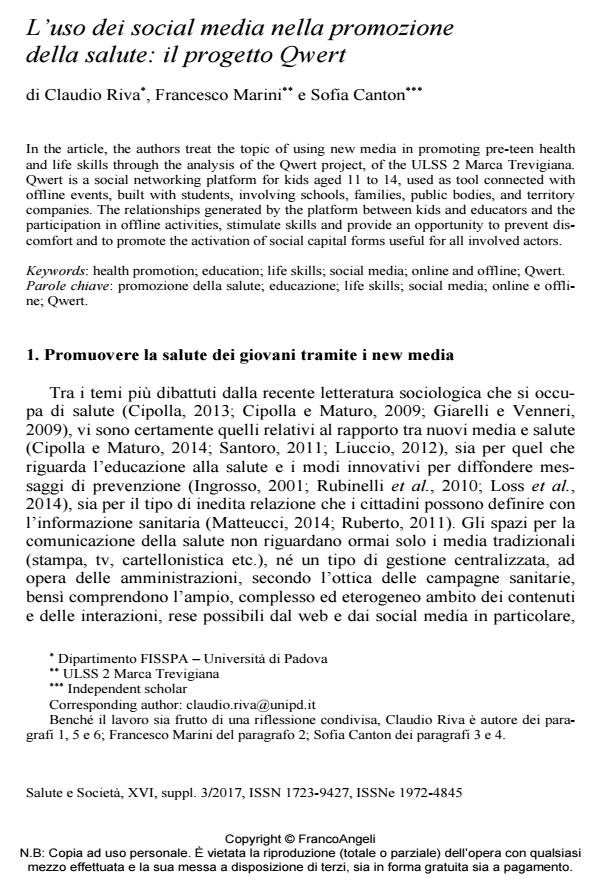L’uso dei social media nella promozione della salute: il progetto Qwert
Journal title SALUTE E SOCIETÀ
Author/s Claudio Riva, Francesco Marini, Sofia Canton
Publishing Year 2017 Issue 2017/3-Suppl.
Language Italian Pages 20 P. 47-66 File size 233 KB
DOI 10.3280/SES2017-SU3004
DOI is like a bar code for intellectual property: to have more infomation
click here
Below, you can see the article first page
If you want to buy this article in PDF format, you can do it, following the instructions to buy download credits

FrancoAngeli is member of Publishers International Linking Association, Inc (PILA), a not-for-profit association which run the CrossRef service enabling links to and from online scholarly content.
In the article, the authors treat the topic of using new media in promoting pre-teen health and life skills through the analysis of the Qwert project, of the ULSS 2 Marca Trevigiana. Qwert is a social networking platform for kids aged 11 to 14, used as tool connected with offline events, built with students, involving schools, families, public bodies, and territory companies. The relationships generated by the platform between kids and educators and the participation in offline activities, stimulate skills and provide an opportunity to prevent discomfort and to promote the activation of social capital forms useful for all involved actors.
Keywords: Health promotion; education; life skills; social media; online and offline; Qwert.
Claudio Riva, Francesco Marini, Sofia Canton, L’uso dei social media nella promozione della salute: il progetto Qwert in "SALUTE E SOCIETÀ" 3-Suppl./2017, pp 47-66, DOI: 10.3280/SES2017-SU3004